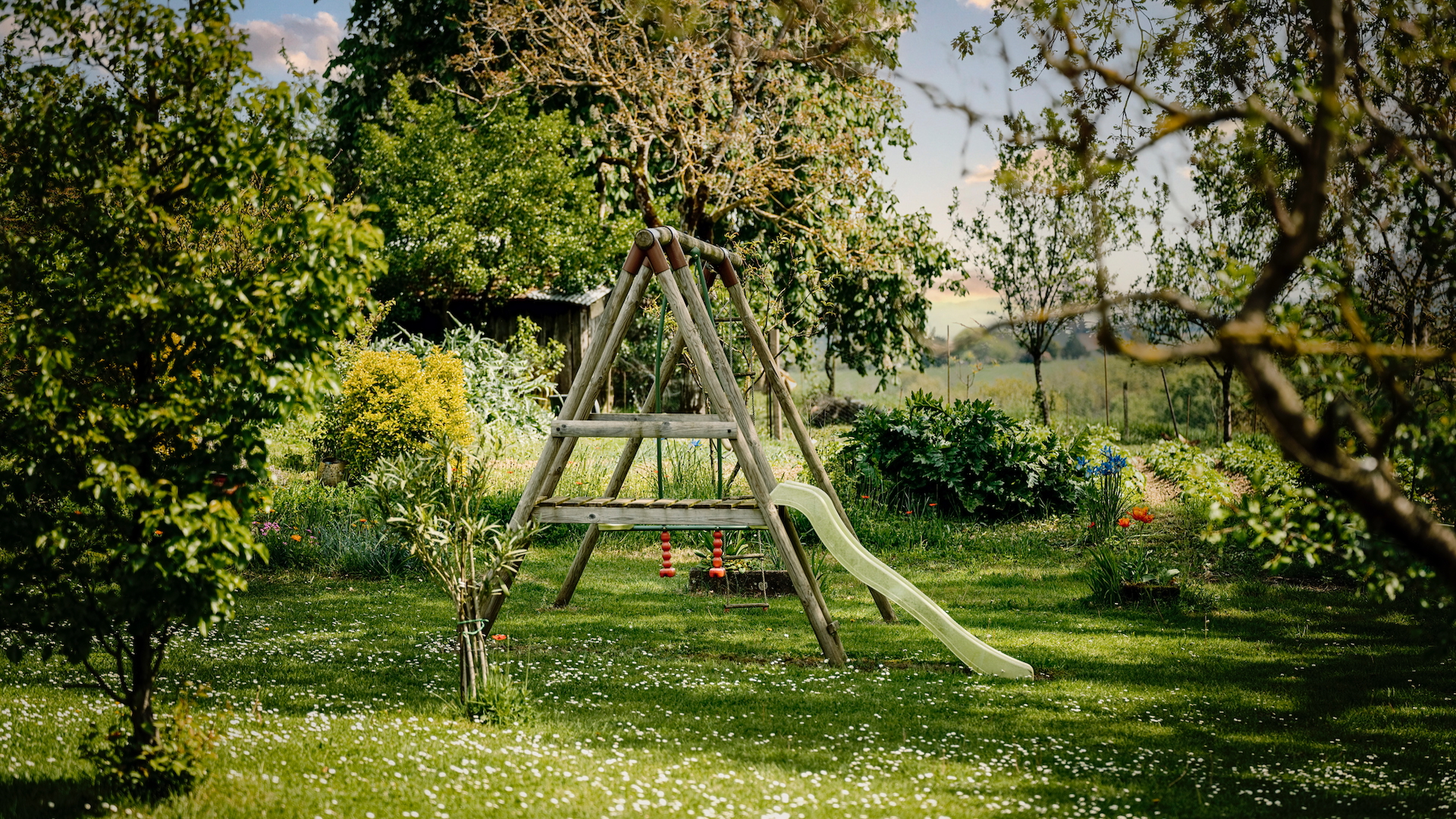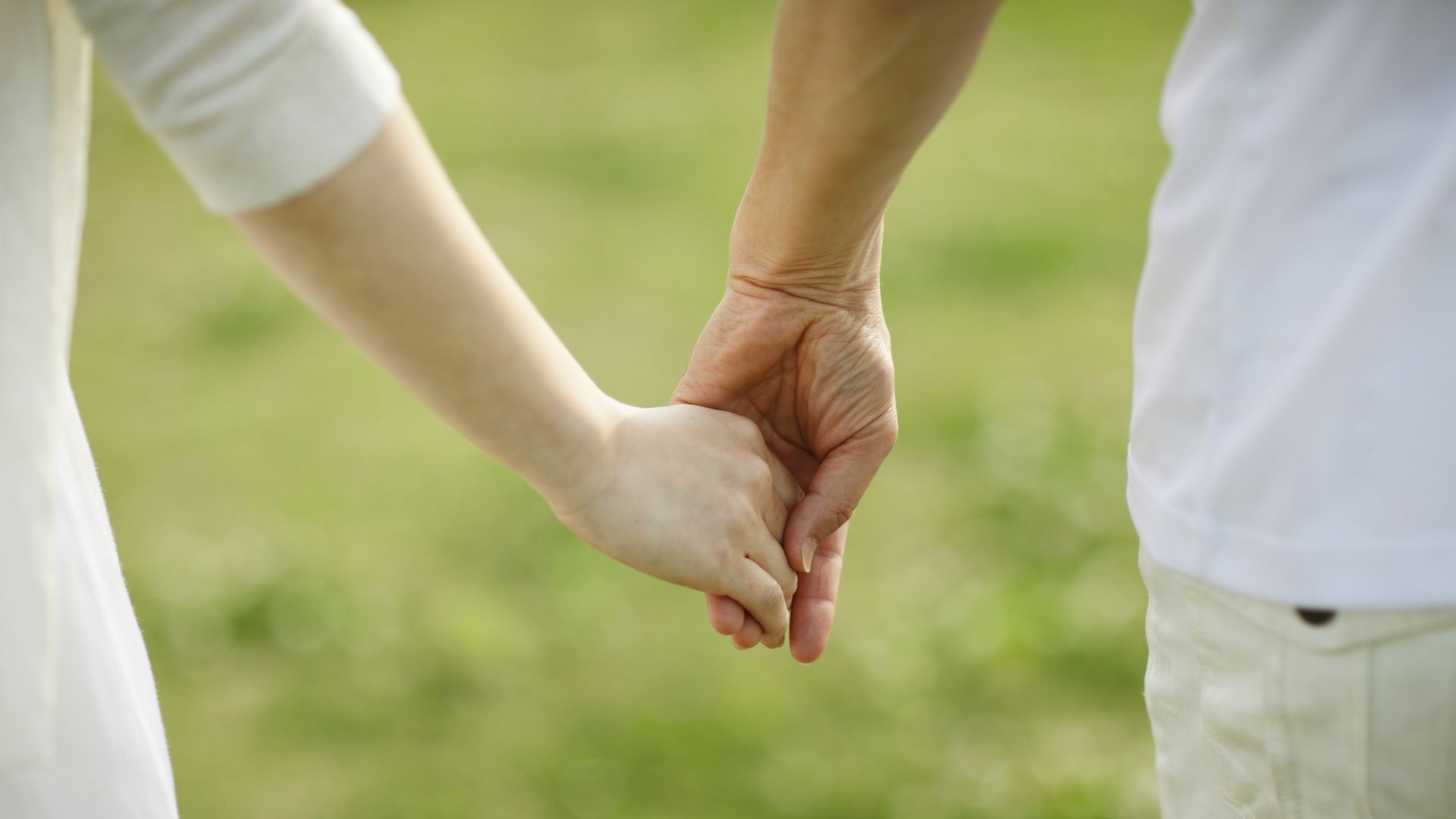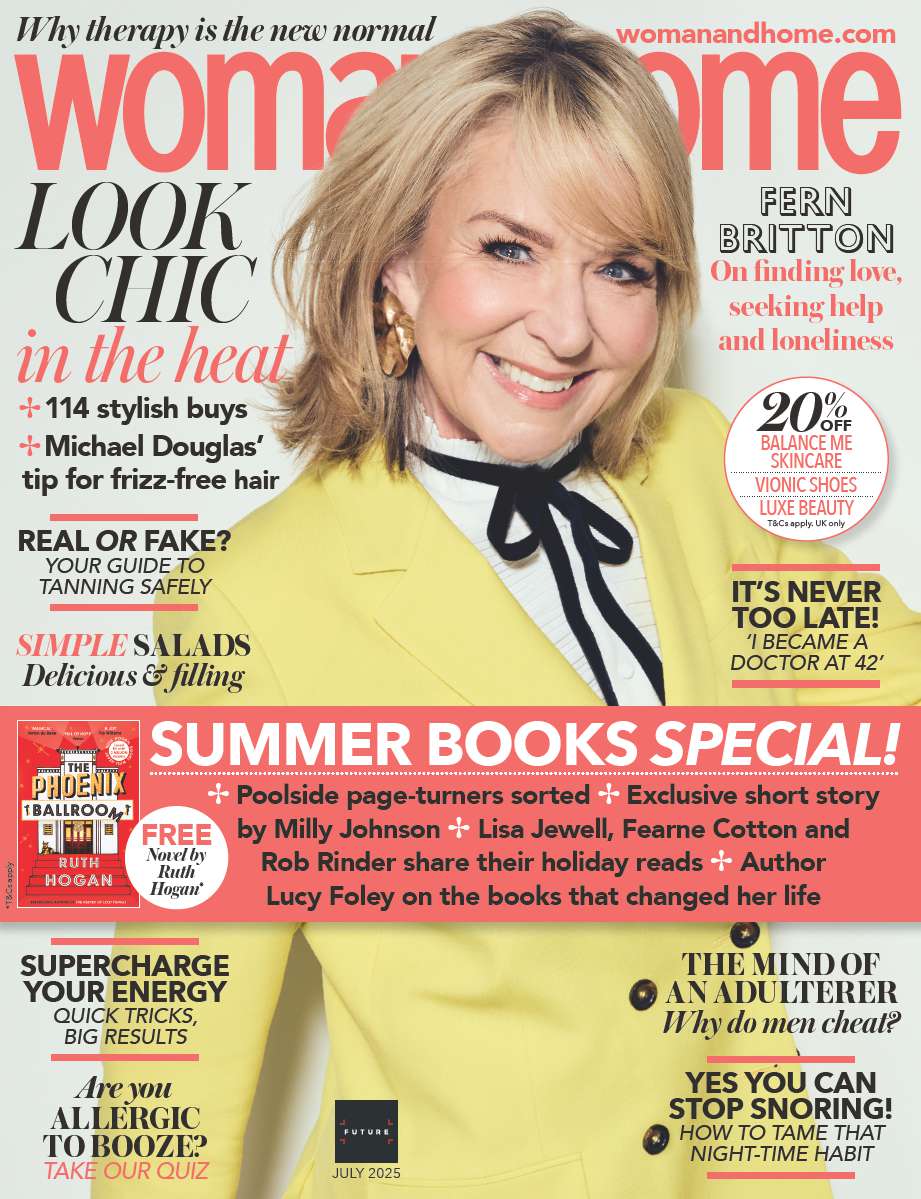"Our marriage survived an affair – this is how we repaired our relationship"
One woman opens up on discovering her husband's infidelity, how she healed, and how their 'second marriage' is deeper and more honest. Plus, an expert shares advice on healing from betrayal.

You may be one of the nearly half a million listeners enjoying the latest series of The Affair... by Anna Williamson podcast. But what does it feel like to go through an earth-shattering betrayal, and come out the other side feeling stronger and able to give it another go with your partner?
After discovering her husband's infidelity, Jo* was convinced their marriage was over - but what followed was a journey of healing, forgiveness, and ultimately rebuilding something stronger. Here she tells us how they saved their relationship.
"When I started at university in the late 90s, I sat beside a gorgeous girl who became my new best friend – and fell in love with her brother, Paul*. We’ve been together ever since. We married in 2005, and had busy lives bringing up two sons and holding down challenging jobs. I was in the retail industry and Paul worked in finance.
"We’d been married for about 10 years when I spotted text messages on his phone that were not meant for my eyes. They were between my husband and a woman he’d met on a weekend boys’ ski holiday. It seemed clear to me something was going on but when I confronted him about the texts, he was adamant that I was reading too much into them.
"It was a complicated situation, as we were going on a family holiday the next day with our sons, who were both under 10.
"It was a difficult trip. If I ever look back at photos, I can see the mental strain on my face.
"Although Paul denied having an affair, he agreed we should get help, as the fact he had been secretive highlighted something was missing in our relationship. We started marriage counselling, and with therapy, we decided to put the past behind us and move on."
Sign up to our free daily email for the latest royal and entertainment news, interesting opinion, expert advice on styling and beauty trends, and no-nonsense guides to the health and wellness questions you want answered.
How I discovered the affair
"However, two years later, in 2016, I got WhatsApp messages from the same woman, who had got hold of my number. She told me the relationship had continued.
"Paul, who was with me, tried to grab the phone from me – but it was too late. From the photos she sent, he couldn’t deny anything. I'd had no idea.
"At the time, I was dealing with the loss of my mother, who had died a few months before. I went to see the GP and was diagnosed with PTSD and clinical depression. I also had insomnia and disordered eating. I think a lot of it was due to shock."

"We separated immediately. Paul moved in with his parents, while I stayed in the family home with the boys.
"Paul was as broken as I was. In the darkness of that time, I remember him saying to me, ‘I know you will never believe a word I say, but I will spend the rest of my life proving to you that I made a mistake, and that you can love me and you can trust me. I will do whatever it takes to be with you and the boys.’
"While I’d decided that our marriage was over, Paul was clear he wanted to get back together and to heal, but he didn’t put pressure on me.
"Both of us worked individually with therapists and healers. We also saw a marriage counsellor together because we had two children, and we didn’t want what had happened to us to impact them."
Moving back in together
"I was speaking to divorce lawyers and solicitors, and looking for a new house to rent with the boys. Then, one day, about six months after we’d separated, Paul sent me a text message. He’d seen a run-down house that he thought would be an opportunity for us to do up together.
"‘Ultimately, I would love to make this into a family home but I understand that is not where you are now,’ the text read. ‘I see it as a chance to develop and sell, and have that investment for us and our boys’ future. I would love you to come and have a look.’
"Eventually, I agreed to view the house. I had been using meditation and mindfulness to help myself heal through the plethora of mental health issues. Every day I would get the boys to school, then lie on my bed and focus on the feelings of being happy. In this transcendental meditation, my future would always be about being in a garden.
"When I walked into the garden of the house Paul had found, it literally took my breath away. It was like the garden I had imagined and I immediately felt that I could be happy there.
"That’s when I thought ‘Let’s try’. We bought that house and in 2017 moved in as a family."

"The house was our opportunity for a new start. Working to rebuild it helped bring us back together. But it was more than that. When I chose to go there, it was the moment when I chose Paul. It was not out of need but out of desire because I loved him.
"I knew we had a deep connection, but something had snapped on the outside. I decided to see what we were going through as a rare opportunity to make us better.
"We had been together by this point for 20 years and married for a decade, but we needed a redirection. It wasn’t about trying to rebuild or ‘go back’ to the marriage we had – that had gone forever. Rather, it was about creating a second marriage with the same person.
"Paul and I had to start from scratch. We decided to go on dates and revive romance, ignoring the judgement of other people, some of whom didn’t think we should try again. It was just about us, our boys and our family, creating something new."
Rebuilding trust
"I began to realise that successfully rebuilding our relationship was about healing, not fixing. The healing starts as individuals.
"You can’t have two hurt people coming back together or you will probably hurt one another again. You have to focus on your own emotions first. I had to learn to trust myself again, so that I could then trust Paul."

"Nearly 11 years on from discovering those texts, when I think of our first marriage, it was fun – we were youthful, innocent. We had two children, big jobs, lots of pressure, maybe less time for each other.
"Now, it’s a more mature marriage and our communication has hugely improved. We’re more self-aware and we no longer hold back our honest feelings.
"I am sharing my story because I want people in my situation to understand that you can reconcile after betrayal.
"I don’t wear my original wedding rings. I gave those back to Paul and he had them remade into beautiful pieces of jewellery for me. I said I wasn’t going to wear a ring again, as our marriage is more than a symbol.
"Instead, we’ve created something that is so much better than what we had the first time around. We’ve both grown as people – and as a result, we are much stronger as a unit."
*names have been changed
Why affairs happen
One in five British adults admits to having had an affair, while a third say they have thought about it, a study has shown. Most affairs (48%) involve a friend, while 38% said they cheated with a colleague.
The main reason people gave for straying was being flattered by the attention. Sex was a factor for 15% of women and 32% of men. A far bigger reason for 43% of women was feeling ‘emotionally deprived’ in their existing relationship.
Men are slightly more likely than women to be repeat offenders (49% of cheating men have had more than one affair compared to 41% of women). And 14% of men admit they are unable to commit to one partner compared to 7% of women.
Many marriages do survive infidelity, says Kate Daly, a relationship counsellor, co-founder of the legal service Amicable, and host of The Divorce Podcast. "Studies show that 60-75% of couples remain together after experiencing infidelity, though not all do so out of love – factors like fear of being alone or financial issues also play a part," she says.
Kate identifies three reasons why affairs happen in the first place:
- Serial cheaters. This is more to do with the person having the affair than their partner. They have cheated in previous relationships and honesty is not a priority to them.
- The relationship is already over, but this hasn’t been communicated. They cheat almost hoping to get caught and then avoid having to raise the subject, leaving it instead to their partner to discover and react.
- One-off accident. Often a combination of setting, alcohol and being with someone they find attractive. These affairs are usually a symptom that something is wrong within the relationship and ‘needs’ are not being expressed or met. Perhaps it’s sex life, intimacy, or sharing of the mental, physical or financial load. Ultimately, the communication between a couple is breaking down, often because bad habits have built up over time, and love and intimacy have taken a back seat. These are the affairs a marriage is most likely to recover from.
How to heal the hurt of betrayal
Relationship counsellor Kate shares her advice:
Healing begins with honesty – and it has to go both ways
"Moving past an affair is possible, but only when both partners are willing to confront the truth head-on," says Kate.
"That means the partner who betrayed needs to be transparent, take full responsibility, and answer tough questions without defensiveness. And the betrayed partner needs space to express their pain.
"Honesty becomes the foundation for rebuilding trust. It can be painful to reflect that sometimes it’s the person who has been cheated on who also needs to make changes."
Rebuilding trust isn’t a single moment – it’s a long-term process
"Trust is rebuilt through consistent actions over time – showing up, being emotionally present, and doing what you say you will do.
"That might involve couples therapy, individual work or clear agreements about communication and boundaries.
"The key is that trust is earned, not expected – and both people need to be committed to the long-haul."
Don’t just repair – transform
"The couples who come out strongest after an affair aren’t just trying to ‘go back to normal’ – they use the crisis as a catalyst for deeper connection.
"That means getting curious about what wasn’t working before, learning to meet each other’s emotional needs better, and building a new relationship together – one rooted in mutual care, respect and vulnerability.
"Pain can become growth but only if both partners are willing to do the inner work."

This article first appeared in the July 2025 issue of woman&home magazine. Subscribe to the magazine for £6 for 6 issues.
Jackie is a freelance writer and editor with over 25 years of experience working in editorial roles at daily newspapers and magazines including Good Housekeeping, Woman’s Own and the Daily Mail.
You must confirm your public display name before commenting
Please logout and then login again, you will then be prompted to enter your display name.